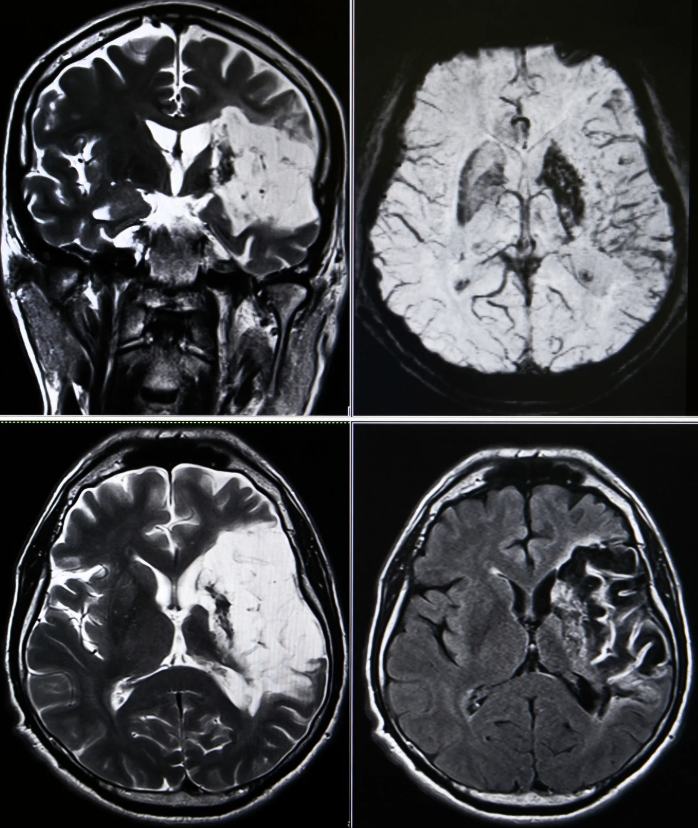
August 7, 2025
Can We Really Reduce Our Risk of Stroke? The Evidence Says Yes
Listen on: Apple Podcasts | Spotify | Amazon Music | Podcast Index | Overcast | YouTube
When we think about life-threatening health risks, heart attacks often dominate the conversation. But strokes—equally devastating—deserve just as much attention. In fact, nearly as many strokes occur each year as heart attacks, and the aftermath can be more debilitating. About 800,000 people experience a stroke annually in the U.S., with nearly half left chronically disabled (CDC). So the pressing question becomes: can we actually reduce our risk?
In this episode of Live Long and Well, I spoke with Dr. Anthony Pearson, board-certified cardiologist and author of The Skeptical Cardiologist, to explore what the data truly tells us about stroke prevention. Here’s what we uncovered—and what you can do starting today.
Understanding Stroke: Not All Are Created Equal
A stroke occurs when blood flow to an area of the brain is interrupted—typically suddenly—causing symptoms such as weakness, speech difficulties, or loss of consciousness. But not all strokes are the same.
Roughly 90% are ischemic strokes, caused by clots or blocked arteries, while the remaining are hemorrhagic strokes—often linked to ruptured aneurysms or vessel malformations (AAFP). Knowing the type of stroke is critical because prevention strategies may differ.
The Big Three: Blood Pressure, Physical Activity, and Cholesterol
If you’re only going to remember three action items, let them be these:
- Control Your Blood Pressure: Hypertension is the single most important modifiable risk factor. Studies suggest that high blood pressure contributes to up to 50% of all strokes. Aiming for a systolic blood pressure under 130 mmHg, when tolerated, significantly reduces your risk (SPRINT trial).
- Stay Physically Active: While the observational data on exercise and stroke is mixed, meta-analyses show that regular activity can lower your stroke risk by 20–30% (BMJ study). Even if the gold-standard randomized trials aren’t available, the overall cardiovascular benefits of exercise make it a worthwhile investment.
- Monitor Your Lipids: Elevated LDL and ApoB levels increase risk for atherosclerotic stroke. Lowering these through lifestyle changes or medications reduces risk in the right population (Lancet study).
Emerging Insight: The Impact of Loneliness
A recent study of 12,000 adults over age 50 found that persistent loneliness was associated with a 50% increased risk of stroke (Lancet eClinicalMedicine). While observational, the data underscores the importance of social connection—one of the six pillars I always emphasize. Whether it affects medication adherence, increases stress, or fuels poor health habits, loneliness appears to matter.
What Doesn’t Work (Or May Do Harm)
As always, we must be just as clear about what not to do. Over-the-counter supplements like fish oil and vitamin B12 have not shown stroke prevention benefits in rigorous studies. Similarly, daily aspirin for stroke prevention in those without prior cardiovascular events has fallen out of favor, due to its potential to increase brain bleeds (Skeptical Cardiologist).
Screening & Symptoms: What to Watch For
Unlike heart disease—where coronary calcium scans can be revealing—routine screening of carotid arteries hasn’t proven helpful for most people. However, if you’ve had family members with stroke or aneurysm, speak with your doctor about whether a brain scan might be worth considering. And remember, atrial fibrillation is a major source of embolic stroke—if you or your smartwatch detects irregular rhythms, don’t ignore it.
Above all, recognize the signs of stroke: sudden weakness, difficulty speaking, confusion, or severe headache. Get to the emergency room immediately—treatments like clot-busting drugs only work if administered quickly.
Final Thought: Prevention Is Possible—Start With Your Heart
The best news? If you’re already doing the work to reduce your heart attack risk—managing blood pressure, staying active, improving your diet—you’re already reducing your stroke risk too. Stroke prevention isn’t mysterious. It’s deeply intertwined with the everyday health decisions we make.
So don’t let the silence around stroke prevention fool you. You have more control than you think. Talk with your doctor, check your blood pressure, move your body, and stay connected. These small choices can create big shifts—toward not just a longer life, but a healthier one too.

Scientific research underscores the intricate interplay between lifestyle factors and human health. Exercise, a cornerstone of well-being, enhances cardiovascular health, boosts mood, and promotes cognitive function. Coupled with proper nutrition, it fosters optimal physical performance and supports immune function. Beyond the individual, social ties exert profound effects on health, buffering against stress and enhancing longevity. Meanwhile, exposure to hot and cold environments elicits physiological adaptations, bolstering resilience and metabolic efficiency. Adequate sleep, essential for cognitive consolidation and metabolic regulation, underscores the importance of restorative rest. Moreover, the mind-body harmony underscores the intricate relationship between mental and physical health, highlighting the profound impact of mindfulness and stress management on overall well-being. Integrating these factors into daily life cultivates a holistic approach to health promotion and disease prevention.